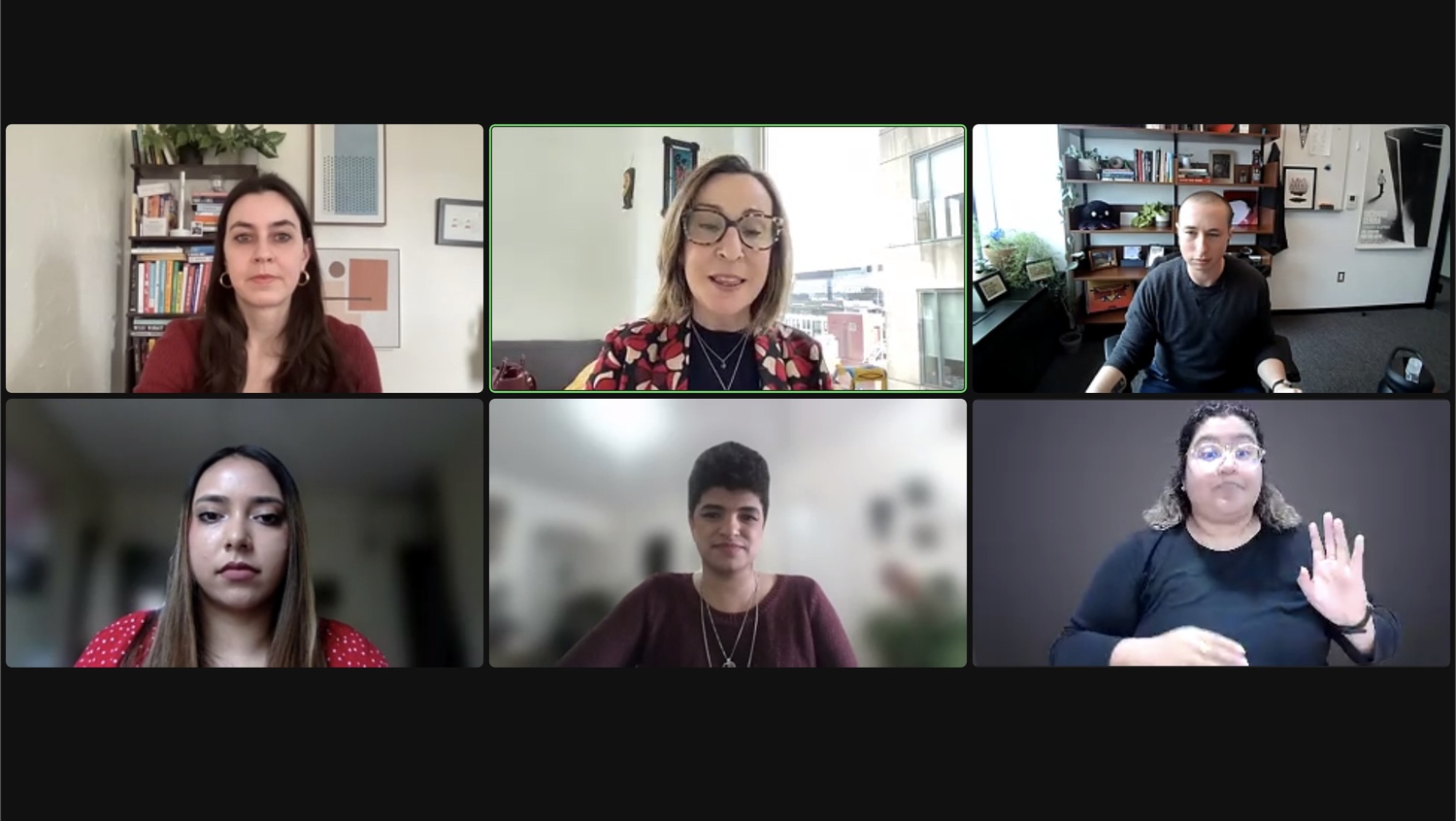
News
‘Deal with the Devil’: Harvard Medical School Faculty Grapple with Increased Industry Research Funding

News
As Dean Long’s Departure Looms, Harvard President Garber To Appoint Interim HGSE Dean

News
Harvard Students Rally in Solidarity with Pro-Palestine MIT Encampment Amid National Campus Turmoil

News
Attorneys Present Closing Arguments in Wrongful Death Trial Against CAMHS Employee

News
Harvard President Garber Declines To Rule Out Police Response To Campus Protests
Journalists and Activists Discuss Gender-Based Harassment at Harvard Berkman Klein Center Panel

Harvard University’s Berkman Klein Center for Internet and Society hosted a panel of journalists and activists for a conversation Thursday on gender-based harassment in journalism.
The virtual talk, titled “‘Weaponizing Misogyny’: Gender-Based Harassment’s Impact on Journalists and Free Expression,” featured Washington Post journalist Taylor Lorenz, Student Press Law Center board member Pratika Katiyar, PEN America Senior Manager for Free Expression and Digital Safety Jeje Mohamed, and International Women’s Media Foundation Executive Director Elisa Lees Muñoz.
Lorenz, a technology and online culture columnist who has attracted online backlash from right-wing social media accounts, spoke about her own experience with harassment. She said she receives death threats “every single day,” but added that she finds other forms of harassment even more harmful.
“What’s been really hard is what’s been happening to my family,” she said.
Lorenz said her sister faced accusations of grooming that resulted in calls to the police and Child Protective Services, while her parents have been “swatted” — the practice of reporting false threats to law enforcement to induce an emergency response.
“It’s kind of this halo effect where I feel like anybody associated with me gets targeted,” she said.
According to Lorenz, online harassment has also affected her career.
“I’ve lost a lot of professional opportunities. I’ve been disinvited from speaking events from going on podcasts and stuff because they don't want to deal with the backlash or they don’t feel like they have enough security for the event,” she said.
Muñoz said online harassment has negative effects on the mental health of reporters.
“There is research done on the impact on journalists and they exhibit and report having symptoms similar to PTSD as a result of these kinds of attacks and onslaughts,” she said. “So I think it’s really important not only to recognize that the threat does often move into the physical space, but that the impact even if it stays in the cyber world is the same.”
Katiyar, a sophomore and student journalist at Northeastern University, said Gen Z journalists who rely on social media for exposure face particular challenges. Katiyar said she can’t simply log off when facing harassment because life for her generation exists “in between off and online.”
“It’s easier said than done, to get offline or shrug it off,” she said. “There needs to be a better implementation of support within newsrooms, trainings to combat that because being offline is not always an option for a lot of young people.”
Mohamed said newsrooms should take steps toward addressing gender-based harassment, beginning with acknowledging the issue and checking in on those affected.
“If people feel that the newsroom considers online abuse as an actual threat and a problem, they will be more likely to talk and seek help if they need it,” Mohamed said.
Lorenz said support from peers can be another resource for journalists facing online harassment.
“I’m in a group chat with a lot of other female journalists who have encountered this type of stuff. We’re all tech reporters, women tech reporters, so we kind of get that and I think just having that peer-to-peer support is really great,” she said. “I wish it’s something that newsrooms would better facilitate.”
Muñoz called on newsrooms to acknowledge and address gender-based harassment.
“No journalists, women journalists, women journalists of color should have to endure what they are enduring every single day,” she said.
“We should all be accountable to making sure that news organizations, individuals, nonprofit organizations are addressing this because the consequences are very dire for our democracy,” Muñoz added.
—Staff writer Jo B. Lemann can be reached at jo.lemann@thecrimson.com. Follow her on Twitter @Jo_Lemann.
—Staff writer Neil H. Shah can be reached at neil.shah@thecrimson.com. Follow him on Twitter @neilhshah15.
Want to keep up with breaking news? Subscribe to our email newsletter.
